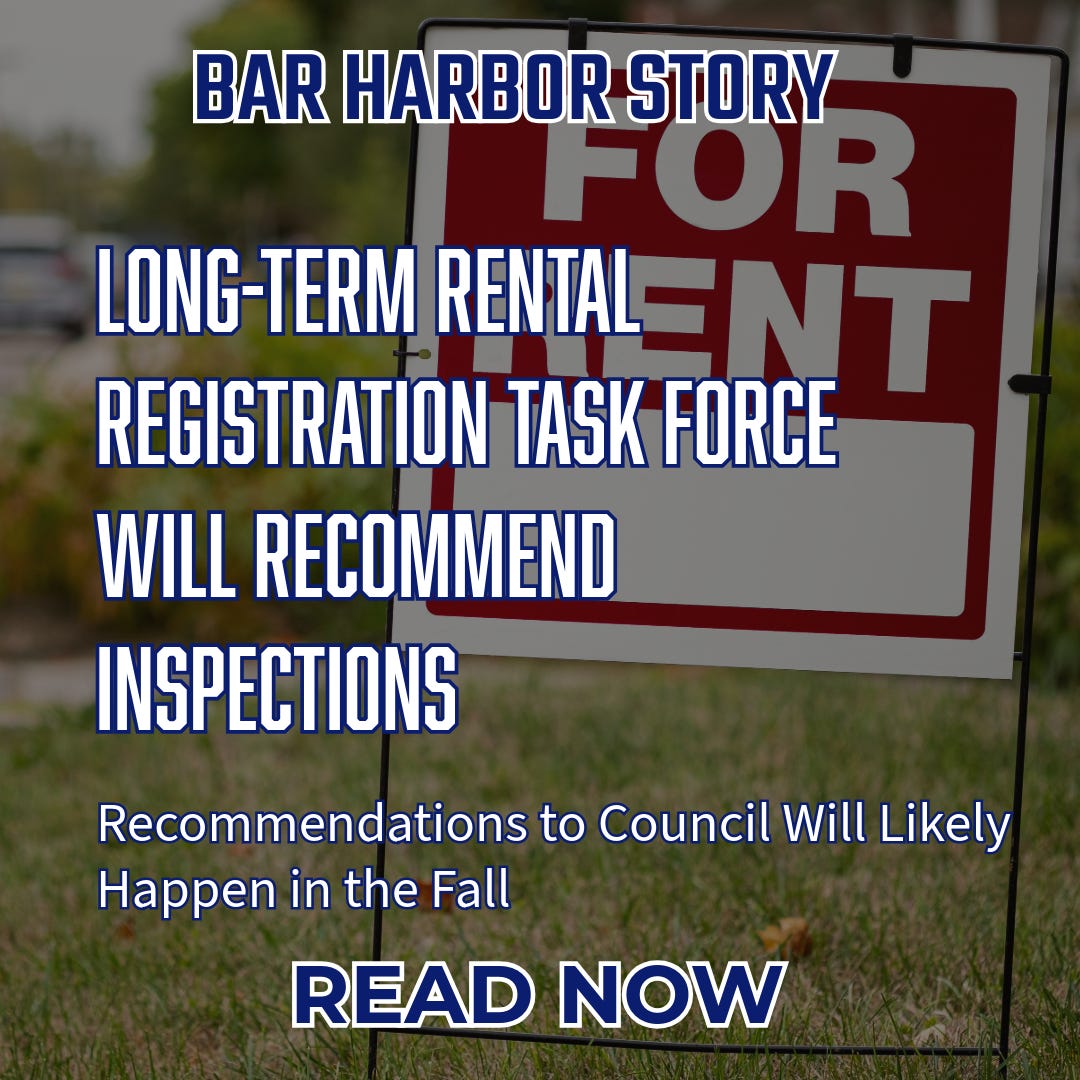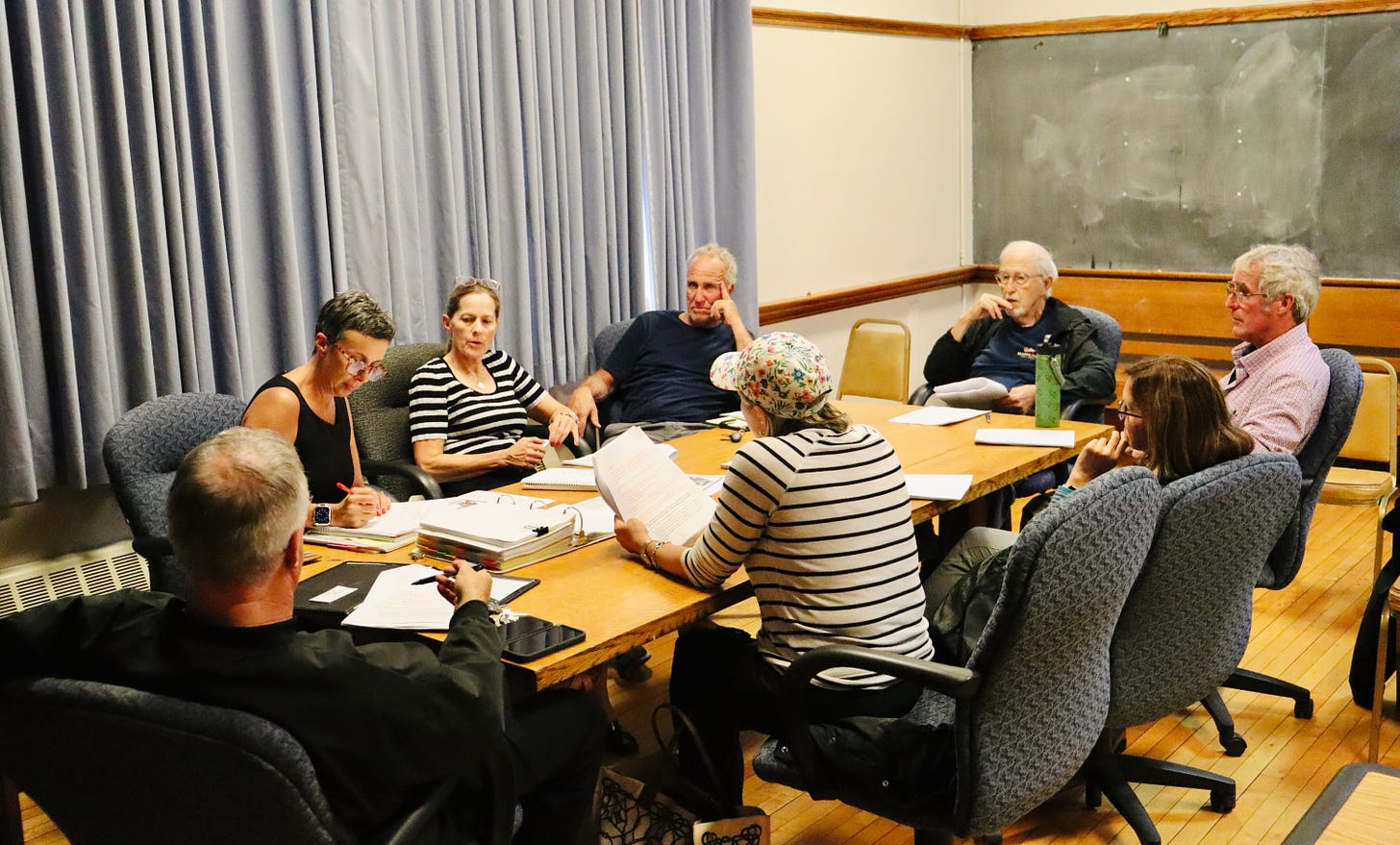Long-Term Rental Registration Task Force Will Recommend Inspections
Recommendations to Council Will Likely Happen in the Fall
BAR HARBOR—The Long-Term Rental Registration Task Force (LTRRTF) met July 25, for what was likely its last meeting, to fine tune the recommendations that it will make to the Town Council. Those recommendations will probably not be made until the fall according to Code Enforcement Officer Angie Chamberlain.
According to Chamberlain, since the registration process began on January 1, 2023, there have been approximately 603 LTR dwelling units registered.
The major recommendation that the task force will be making to the Town Council is to add an inspection component to the LTR program.
When the LTR ordinance was originally conceived and as it is currently written, there is no life safety inspection component. Chapter 130 reads, “Inspections are not currently required for LTRs.”
A long-term rental (LTR) is “any dwelling unit that is rented or available for rent for a period of 30 consecutive days or more, in exchange for compensation.”
The task force felt that adding an inspection component to the ordinance will help “to ensure and maintain the quality and adequacy of the long-term rental housing stock and to partially meet the goal of ensuring that all residential rental units in the Town of Bar Harbor are maintained in a safe and sanitary condition and do not create a nuisance or derelict condition to the surroundings.”
In an effort to try and protect the LTR stock and keep property owners from having to possibly spend thousands of dollars, the long-term rental life safety inspection will be a minimal inspection rather than an inspection that demands meeting of the latest life safety codes like the stringent short-term rental life-safety inspection.
After making a few minor adjustments to wording, the LTRRTF voted unanimously at the July 25 meeting to make the life-safety inspection recommendation to the Town Council. The wording below is from the draft document used at the meeting. The struck material and the bolded material represent the recommended change but may not be accurate to the final version.
“An inspection of all Long-Term Rental units should be conducted on at least a three-year basis.
“The Long-Term Rental safety inspection should be limited to the following four areas:
“The presence of operable
smoke and carbon monoxide detectors;” life safety detectors such as but not limited to: smoke detectors, carbon monoxide detectors, and fuel gas detectors;“Safe and effective egress;
“Adequate E911 addressing signage at the property; and
“Immediate life safety threats.
“The initial inspection cycle should be prioritized using a weighted risk score model based on the characteristics of the property. The higher the score, the greater the priority and placement on the inspection list will be organized by the score.
“The inspection component of the program should be revisited after three years to assess its adequacy in continuing to meet the goals of the program and for staff to recommend modifications.”
LONG-TERM RENTAL ORDINANCE
According to chapter 130, Long-Term Rental Housing of the Town Code, “a valid LTR registration issued under the terms of this chapter is required. No person, including without limitation a property owner, owner’s associate, real estate broker, or property manager, shall allow any rental housing to be occupied, let or offer any rental housing to another person for occupancy unless the owner has a valid registration under the terms of this chapter. Any person renting without a registration is in violation of these provisions.”
Each individual long-term dwelling unit for rent requires a registration.
Registrations expire December 31 of each year and must be renewed every year. There is no fee if the registration is completed prior to March 1, but the following fee structure applies if the registration is submitted after April 30:
“Registration filed in March: $50.00;
“Registration filed between April 1 and July 31: $100.00 per month or portion thereof;
“Registration filed between August 1 and December 31: $200.00 per month or portion thereof.”
The provisions of chapter 130 do not apply to “YWCA Mount Desert Island, Short-Term Rentals, Employee Living Quarters, Shared Accommodations, any type of transient accommodation of less than 30 days, government regulated housing under HUD regulations, campgrounds, on-campus college dormitories, convalescent and/or congregate housing, and nursing homes; all as defined in Chapter 125 of the Bar Harbor Municipal Code.”
LINKS TO LEARN MORE
If you’d like to donate to help support us, you can, but no pressure! Just click here.








